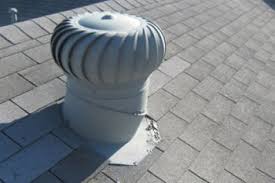Brandpoint (BPT) - Most of us spend the majority of our time indoors. Ironically, that's where allergens, mold and other irritants are most at home. In fact, the EPA finds that pollutant levels can be two to five times higher inside our homes than outside.
In addition to making it easier to breathe, research shows that a home with clean air also pays up to $300 less in annual heating and cooling costs.
Here are five steps you can take, some as quickly as this weekend, to improve air quality and energy efficiency in your home:

1. Take care of your homes heating, ventilation and air-conditioning system.
Energy use costs the average American home about $2,000 a year, according to the U.S. Energy Information Administration. About 41 percent of that goes toward heating and 6 percent for cooling, the EIA says. Regular maintenance including twice-yearly servicing by a professional, and regular air filter changes by homeowners can help your HVAC system operate at peak efficiency.

2. Change HVAC air filters regularly and reliably.
Filter changes are especially important for two reasons. First, a clogged filter makes your system work harder and consume more energy. Second, a clogged filter is the primary cause of home heating and cooling system failures that can cost thousands of dollars to repair. If you always forget to change your air filters, an air filter monitor, like those offered by CleanAlert, can help. The monitors wirelessly alert you when an HVAC filter is clogged and needs to be changed. Visit www.cleanalert.com to learn more.

3. Ensure your home is properly ventilated.
Americans tend to think their homes should be completely air tight. While you dont want cool air to escape in summer or warm air to get out in winter, it is important to vent contaminated air and excess humidity from your home year round. Make sure kitchens and bathrooms have operating exhaust fans to help vent stale, contaminated or moisture-laden air from your home.

4. Kick the habit, and dont indulge anyone elses habit in your home.
Just as smoking impacts the health of the person whos smoking, secondhand smoke greatly affects the quality of indoor air. Improving indoor air quality is just one more reason to give up smoking. And while it may seem harsh, dont allow others to smoke in your home, either. Smoke residue which contains carcinogens can linger on surfaces long after the smoker has departed.

5. Add a touch of green life throughout your home.
A 30-year NASA study found that houseplants are very effective at cleaning indoor air. Sure, room air purifiers serve the same basic functions, but houseplants wont add to your utility bill while theyre removing contaminants from the air and emitting fresh oxygen. Plus, houseplants give your home a burst of color, beauty and life. NASA recommends one houseplant per every 100 square feet of home.
These five tactics are simple, speedy ways to get started with improving your homes indoor air quality and overall energy efficiency. You can find numerous other steps with a simple online search or view this list of top tips to improve air quality and save energy.
Source
|